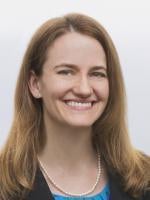On July 6, 2016, the Centers for Medicare & Medicaid Services (CMS) released the CY 2017 Outpatient Prospective Payment System (OPPS) Proposed Rule, which includes proposed regulations to implement Section 603 of the Bipartisan Budget Act of 2015. Effective January 1, 2017, Section 603 bars Medicare payments under the OPPS for items or services (other than services furnished by a dedicated emergency department) furnished at an off-campus provider-based department (PBD), unless the location was billing as an outpatient department of a hospital prior to November 2, 2015. Further discussion of Section 603 is available here and here.
The Proposed Rule comes shortly after the House Ways and Means Committee approved new legislation that would create broader exceptions under Section 603. Under the bill, which the Senate has not yet approved, an off-campus PBD could continue to be eligible for higher OPPS payments in 2017 if the host hospital submitted a voluntary provider-based attestation to CMS pursuant to 42 CFR § 413.65(b)(3) before December 2, 2015.
Effective January 1, 2017, Medicare will pay for such items and services under the applicable fee schedule rather than the OPPS. Payment under the OPPS can be considerably higher than payment under the Medicare Physician Fee Schedule (MPFS) or the Ambulatory Surgical Center (ASC) fee schedule, for example, for the same services, which has been a concern of Congress and the US Department of Health and Human Services Office of Inspector General (OIG), which last month released a report recommending elimination of the provider-based distinction (discussion of the OIG report is available here).
CMS estimates that the proposed implementation of Section 603 will reduce net OPPS payments by $500 million in 2017 and increase payments to physicians under the MPFS by $170 million, resulting in a reduction of Part B expenditures by $330 million.
Services and Locations Subject to Section 603
Section 603 excludes from payment under the OPPS “applicable items and services” furnished by an off-campus PBD on or after January 1, 2017, with the exception of items and services furnished (1) by a dedicated emergency department (defined at 42 CFR 489.24(b)); (2) at “remote locations of a hospital” (i.e., a location where hospital inpatient services are furnished) and locations that are within 250 yards (measured by a straight line from any point of a remote location) of a “remote location of a hospital”; and (3) at a location that was billing as an outpatient department of a hospital prior to November 2, 2015.
CMS proposes to apply the statutory exception for services furnished at dedicated emergency departments broadly and would permit payment under the OPPS for all services furnished at a dedicated emergency department, not just emergency services.
Prohibition on Service Expansion
CMS proposes to limit OPPS payment to services furnished and billed for at an off-campus PBD prior to November 2, 2015. Services will be identified as part of a “clinical family of services,” which is a new term, to group Ambulatory Payment Classifications by 19 specialty areas. Services within a clinical family of services that were furnished and billed for at an off-campus PBD prior to November 2, 2015, would be deemed “excepted services” and would remain eligible for OPPS payment. Services within a clinical family of services that were not furnished and billed for at an off-campus PBD prior to November 2, 2015—i.e., services that were not billed at that location as of the grandfather date—would be deemed “non-excepted services” and would not be eligible for payment under the OPPS.
CMS acknowledges that its current enrollment and billing systems do not accommodate identification of the specific location where off-campus PBD services are furnished or whether a particular location was billing for services within a particular clinical family of services prior to November 2, 2015, and seeks comments on how it might collect appropriate data to identify such services. However, CMS expects hospitals to maintain documentation showing what lines of service were provided at each off-campus PBD prior to November 2, 2015, and to make such documentation available upon request.
CMS is not proposing to limit the volume of services furnished within a clinical family of services that the hospital was billing prior to November 2, 2015. That is, an excepted facility can increase the number of services furnished at the excepted off-campus PBD beyond those furnished on the grandfather date, as long as the increased services are within the same clinical family as the services furnished as of the grandfather date. Additionally, CMS is not proposing at this time but is considering specifying a timeframe in which service lines had to be furnished and billed under the OPPS prior to November 2, 2015, e.g., CY 2013 to November 1, 2015, in order for the services to be excepted services.
Prohibition on Facility Relocation and Expansion
CMS proposes to limit OPPS payment to off-campus PBDs that were identified on the hospital’s Medicare enrollment forms (CMS Form 855A) as of November 1, 2015. CMS would identify each off-campus PBD by the enrolled street address, including suite number. Such locations would be considered “excepted locations” and would be eligible for continued OPPS payment after January 1, 2017, for excepted services.
CMS proposes to limit the ability of excepted locations to relocate or expand. Specifically, an excepted location that relocates would become a non-excepted location and no longer be eligible for OPPS payment. CMS seeks comments on whether to add disaster/extraordinary circumstances exceptions to accommodate relocations that are outside of the hospital’s control. Excepted locations can expand if the expansion takes place at the same enrolled street address. If, however, an excepted location expanded into a separate suite at the same address, CMS would consider the expanded location to be a non-excepted location.
CMS would permit excepted locations to retain their excepted status following a change of ownership (CHOW) if the CHOW also involved the main hospital entity (not just the excepted location) and the new owner accepted assignment of the former owner’s Medicare provider agreement.
Payment Methodology
Under existing Medicare rules, Medicare generally makes two types of payments for most items and services furnished in an off-campus PBD: (1) payment for the items and services furnished by the facility under the OPPS, and (2) payment for the physician’s professional services under the MPFS. Under the Proposed Rule, CMS states that there is “no straightforward way” for CMS to implement, by January 1, 2017, the payment changes under which an off-campus PBD could bill and receive payment for furnishing non-excepted items and services—those services that do not meet the Proposed Rule’s exceptions to bill under the OPPS—under a payment system that is not the OPPS.
Therefore, CMS proposes to pay the majority of non-excepted items and services under the MPFS for a one-year transitional period starting January 1, 2017. CMS would pay physicians furnishing services in off-campus PBDs based on the professional claim and at the non-facility rate. CMS acknowledges that the proposal to pay non-excepted items and services under the MPFS may result in hospitals needing to establish business arrangements with physicians or non-physician practitioners to share reimbursement for the service, and that such arrangements could confront billing and claims submission rules, the fraud and abuse laws, and other statutory and regulatory provisions affecting the Proposed Rule.
For services not payable under the MPFS, CMS proposes that hospitals enroll as a provider or supplier type that is eligible to receive services for the service at issue under a non-OPPS payment methodology. For example, to receive payment for the technical component of certain diagnostic tests, the hospital could enroll as a physician group or independent diagnostic testing facility.
CMS is “actively exploring” options to allow off-campus PBDs to bill for non-excepted items and services under another payment system beginning in calendar year 2018 and seeks comments on what the methodology and process should look like.
The Proposed Rule does not address Medicare cost reporting treatment for services that it would require to be billed under the MPFS at the non-facility rate, but that would continue to be provided in space that is considered by Medicare to be part of the hospital.
340B Impact
Although not directly acknowledged in the Section 603 language or in the Proposed Rule, the method of implementation for Section 603 has the potential to significantly affect hospitals that participate in the 340B Drug Discount Program. The 340B Program is administered by the Health Resources and Services Administration (HRSA) and allows participating hospitals to access reduced pricing for outpatient drugs dispensed to hospital patients. Under current 340B Program policy, off-campus locations of a 340B-participating hospital are eligible to dispense and prescribe 340B drugs only if the Medicare cost report for the hospital reflects Medicare-covered outpatient costs and charges at the location. To the extent that the Proposed Rule would result in Medicare costs and charges for non-excepted locations and services being removed from the Medicare cost report, under current 340B Program policy it is likely that non-excepted locations and services would lose access to 340B pricing. Further, under current 340B Program policy, if a 340B-participating hospital opts to remove certain off-campus PBDs from its Medicare enrollment and convert such locations to non-hospital entities, such non-hospital entities would not be eligible to participate in the 340B program. HRSA likely will not provide further guidance regarding the impact of CMS implementation of Section 603 on 340B Program eligibility until after CMS issues final rules later this year.
Commentary and Next Steps
Hospitals concerned about the implications of Section 603 as enacted should be even more concerned about the manner in which CMS proposes to implement that legislation. Since enactment of Section 603 and leading up to release of this proposed rule, hospitals and hospital associations have peppered CMS and Congress with suggestions about how to interpret and implement the legislation. With respect to just about every major decision point, CMS rejected hospital recommendations and opted for the most restrictive interpretations.
Perhaps most significant for hospitals is how CMS proposes to determine payment for non-excepted services in 2017 using MPFS rates. As proposed, Medicare payment would not only be substantially cut, but also directed to the physician furnishing the services. This aspect of the proposed rule should be particularly troubling for ASCs that converted to provider-based hospital status in recent years, because services furnished at this rate would go not from OPPS back to original ASC rates, but from OPPS to much lower MPFS rates. This proposal alone is likely to inspire many former ASCs to consider conversion back to ASC status.
The Proposed Rule’s limitation on service line expansion and facility relocation and expansion further affects hospitals that are already grappling with the prohibitions imposed by Section 603. If finalized as proposed, the Proposed Rule also has the potential to create significant operational burdens on hospitals, which may need to disclose items and services furnished by each off-campus PBD, work closely with physicians—and likely enter written agreements—in order to obtain payment for off-campus PBD services until CMS identifies a new payment methodology for non-excepted items and services, and assess whether the organization satisfies the requirements to enroll in Medicare as a different provider or supplier type in order to receive payment for exempted services. Hospitals should also evaluate whether the proposal to use Medicare enrollment data as of November 2, 2015, may result in certain locations that a hospital currently treats as off-campus PBDs no longer being viewed as such by CMS, and whether review and updates to the hospital enrollment records may be warranted.
In light of the significant changes to payment and operations that will result if the Proposed Rule is finalized as currently proposed, hospitals should strongly consider providing comments to the Proposed Rule. Hospitals that participate in the 340B Program should also evaluate submission of comments that incorporate alternative approaches to Section 603 implementation that would preserve 340B eligibility for non-excepted services and locations under current 340B Program policies. Comments must be submitted no later than 5 pm EDT on September 6, 2016, and may be submitted electronically via www.regulations.gov.







 />i
/>i
